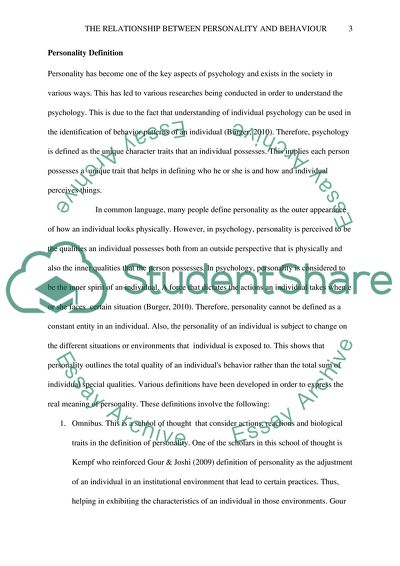Cite this document
(An individuals behaviour varies sufficiently across contexts so as to Essay, n.d.)
An individuals behaviour varies sufficiently across contexts so as to Essay. https://studentshare.org/psychology/1856693-an-individuals-behaviour-varies-sufficiently-across-contexts-so-as-to-make-inferring-a-basic-structure-of-personality-impossible-evaluate-this-statement-using-theoretical-and-empirical-support-from-this-literature-do-you-think-personality
An individuals behaviour varies sufficiently across contexts so as to Essay. https://studentshare.org/psychology/1856693-an-individuals-behaviour-varies-sufficiently-across-contexts-so-as-to-make-inferring-a-basic-structure-of-personality-impossible-evaluate-this-statement-using-theoretical-and-empirical-support-from-this-literature-do-you-think-personality
(An Individuals Behaviour Varies Sufficiently across Contexts so As to Essay)
An Individuals Behaviour Varies Sufficiently across Contexts so As to Essay. https://studentshare.org/psychology/1856693-an-individuals-behaviour-varies-sufficiently-across-contexts-so-as-to-make-inferring-a-basic-structure-of-personality-impossible-evaluate-this-statement-using-theoretical-and-empirical-support-from-this-literature-do-you-think-personality.
An Individuals Behaviour Varies Sufficiently across Contexts so As to Essay. https://studentshare.org/psychology/1856693-an-individuals-behaviour-varies-sufficiently-across-contexts-so-as-to-make-inferring-a-basic-structure-of-personality-impossible-evaluate-this-statement-using-theoretical-and-empirical-support-from-this-literature-do-you-think-personality.
“An Individuals Behaviour Varies Sufficiently across Contexts so As to Essay”. https://studentshare.org/psychology/1856693-an-individuals-behaviour-varies-sufficiently-across-contexts-so-as-to-make-inferring-a-basic-structure-of-personality-impossible-evaluate-this-statement-using-theoretical-and-empirical-support-from-this-literature-do-you-think-personality.


